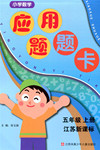题目内容
信息匹配
Mary is digging in the ground for a photo, when along comes John.Seeing that there is no one in sight, John starts to scream.John’s angry mother rushes over and drives Mary away.Once his mum has gone, John helps himself to Mary’s potato.
We’ve all experienced similar annoying tricks when we were young—the brother who stole your ball and then got you into trouble by telling your parents you had hit him.But Mary and John are not humans.They’re African baboons(狒狒).___1.__
John’s scream and his mother’s attack on Mary could have been a matter of chance, but John was later seen playing the same tricks on others.__2.__
Studying behavior like this is complicated but scientists discovered apes(猿) clearly showed that they intended to cheat and knew when they themselves had been cheated.__3.___ An ape was annoying him, so he tricked her into going away by pretending he had seen something interesting.When she found nothing, she “walked back, hit me over the head with her hand and ignored me for the rest of the day.”
Another way to decide whether an animal’s behavior is deliberate is to look for actions that are not normal for that animal.A zoo worker describes how an ape dealt with an enemy.“He slowly stole up behind the other ape, walking on tiptoe.When he got close to his enemy, he pushed him violently in the back, then ran indoors.” Wild apes do not normally walk on tiptoe.____4.__ But looking at the many cases of deliberate trickery in apes, it is impossible to explain them all as simple copying.
It seems that trickery does play an important part in ape societies.___5.__ Studying the intelligence of our closest relative could be the way to understand the development of human intelligence.
A.In most cases the animal probably doesn’t know it is cheating.
B.An amusing example of this comes from a psychologist working in Tanzania.
C.And playing tricks is as much a part of monkey behavior as it is of human behavior.
D.So the psychologists asked his colleagues if they had noticed this kind of trickery.
E.The ability of animals to cheat may be a better measure of their intelligence than their use of tools
F.This use of a third individual to achieve a goal is only one of the many tricks commonly used by baboons.
G.Of course it’s possible that it could have learnt from humans that such behavior works, without understanding why.
 超能学典应用题题卡系列答案
超能学典应用题题卡系列答案

 you something about my study and life.
you something about my study and life.